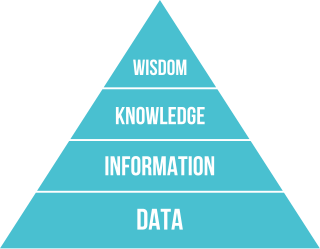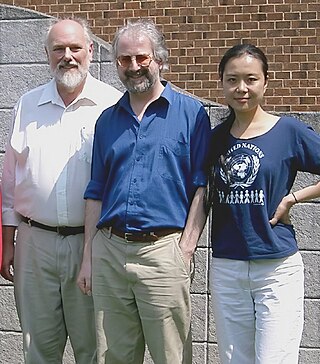
The International Hydrographic Organization (IHO) is an intergovernmental organization representing hydrography. In January 2021 the IHO comprised 94 Member States.
TRIZ is "a problem-solving, analysis and forecasting tool derived from the study of patterns of invention in the global patent literature". It was developed by the Soviet inventor and science-fiction author Genrich Altshuller (1926-1998) and his colleagues, beginning in 1946. In English the name is typically rendered as "the theory of inventive problem solving", and occasionally goes by the English acronym TIPS.

IDEF, initially an abbreviation of ICAM Definition and renamed in 1999 as Integration Definition, is a family of modeling languages in the field of systems and software engineering. They cover a wide range of uses from functional modeling to data, simulation, object-oriented analysis and design, and knowledge acquisition. These definition languages were developed under funding from U.S. Air Force and, although still most commonly used by them and other military and United States Department of Defense (DoD) agencies, are in the public domain.

The World Climate Research Programme (WCRP) is an international programme that helps to coordinate global climate research. The WCRP was established in 1980, under the joint sponsorship of the World Meteorological Organization (WMO) and the International Council for Science (ICSU), and has also been sponsored by the Intergovernmental Oceanographic Commission (IOC) of UNESCO since 1993.
The Intergovernmental Oceanographic Commission of UNESCO (IOC/UNESCO) was established by resolution 2.31 adopted by the General Conference of UNESCO. It first met in Paris at Unesco Headquarters from 19 to 27 October 1961. Initially, 40 States became members of the Commission. The IOC assists governments to address their individual and collective ocean and coastal management needs, through the sharing of knowledge, information and technology as well as through the co-ordination of programs and building capacity in ocean and coastal research, observations and services.
Requirements engineering (RE) is the process of defining, documenting, and maintaining requirements in the engineering design process. It is a common role in systems engineering and software engineering.
Peter Pin-Shan Chen is a Taiwanese American computer scientist. He is a (retired) distinguished career scientist and faculty member at Carnegie Mellon University and Professor Emeritus at LSU. He is known for the development of the entity–relationship model in 1976.
Quality engineering is the discipline of engineering concerned with the principles and practice of product and service quality assurance and control. In software development, it is the management, development, operation and maintenance of IT systems and enterprise architectures with a high quality standard.

A design rationale is an explicit documentation of the reasons behind decisions made when designing a system or artifact. As initially developed by W.R. Kunz and Horst Rittel, design rationale seeks to provide argumentation-based structure to the political, collaborative process of addressing wicked problems.

The DIKW pyramid, also known variously as the DIKW hierarchy, wisdom hierarchy, knowledge hierarchy, information hierarchy, information pyramid, and the data pyramid, refers loosely to a class of models for representing purported structural and/or functional relationships between data, information, knowledge, and wisdom. "Typically information is defined in terms of data, knowledge in terms of information, and wisdom in terms of knowledge".
The Group on Earth Observations (GEO) coordinates international efforts to build a Global Earth Observation System of Systems (GEOSS). It links existing and planned Earth observation systems and supports the development of new ones in cases of perceived gaps in the supply of environment-related information. It aims to construct a global public infrastructure for Earth observations consisting in a flexible and distributed network of systems and content providers.
Knowledge retrieval seeks to return information in a structured form, consistent with human cognitive processes as opposed to simple lists of data items. It draws on a range of fields including epistemology, cognitive psychology, cognitive neuroscience, logic and inference, machine learning and knowledge discovery, linguistics, and information technology.
There is a large body of knowledge that designers call upon and use during the design process to match the ever-increasing complexity of design problems. Design knowledge can be classified into two categories: product knowledge and design process knowledge.
Cloud engineering is the application of engineering disciplines to cloud computing. It brings a systematic approach to concerns of commercialization, standardization, and governance of cloud computing applications. In practice, it leverages the methods and tools of engineering in conceiving, developing, operating and maintaining cloud computing systems and solutions. It is about the process of designing the systems necessary to leverage the power and economics of cloud resources to solve business problems.
Privacy engineering is an emerging discipline within the software or information system domain which aims to provide methodologies, tools, and techniques to ensure the engineered systems provide acceptable levels of privacy.
Advanced Innovation Design Approach (AIDA) is a holistic approach for enhancing innovative and competitive capability of industrial companies. The name Advanced Innovation Design Approach (AIDA) was proposed in the research project "Innovation Process 4.0" run at the University of Applied Sciences Offenburg, Germany in co-operation with 10 German industrial companies in 2015–2019. AIDA can be considered as a pioneering mindset, an individually adaptable range of strongest innovation techniques such as comprehensive front-end innovation process, advanced innovation methods, best tools and methods of the theory of inventive problem solving TRIZ, organisational measures for accelerating innovation, IT-solutions for Computer-Aided Innovation, and other tools for new product development, elaborated in the recent decade in the industry and academia.

The Ocean Biodiversity Information System (OBIS), formerly Ocean Biogeographic Information System, is a web-based access point to information about the distribution and abundance of living species in the ocean. It was developed as the information management component of the ten year Census of Marine Life (CoML) (2001-2010), but is not limited to CoML-derived data, and aims to provide an integrated view of all marine biodiversity data that may be made available to it on an open access basis by respective data custodians. According to its web site as at July 2018, OBIS "is a global open-access data and information clearing-house on marine biodiversity for science, conservation and sustainable development." 8 specific objectives are listed in the OBIS site, of which the leading item is to "Provide [the] world's largest scientific knowledge base on the diversity, distribution and abundance of all marine organisms in an integrated and standardized format".

Tony Rees is a software developer, data manager and biologist resident in Australia since 1986, and previously a data manager with CSIRO Marine and Atmospheric Research. He is responsible for, among other systems:






